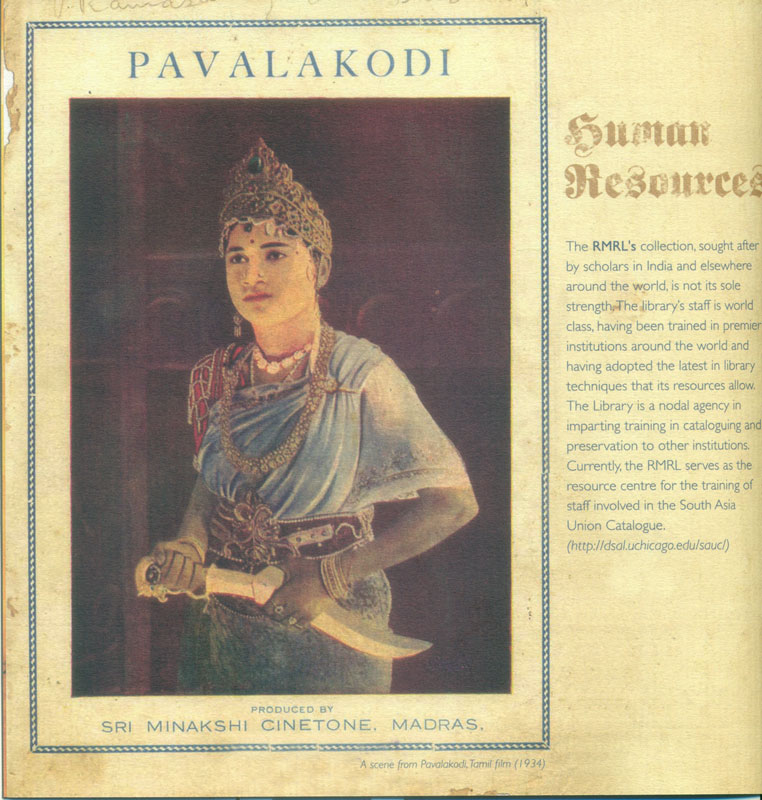Roja Muthiah Research Library (RMRL)


Grant Period: Over four months
This grant will support the Roja Muthiah Research Library (RMRL) to host a two-day conference to examine the role of the archive and its influence in shaping the history of early Tamil cinema. Founded in 1994, RMRL has a collection of over 1,50,000 books, journals, newspapers, pamphlets, and rare audio records, that covers fields as diverse as indigenous medicine, and classical, medieval and folk Tamil literature. It also has a rich holding of oleo-lithographs from Raja Ravi Varma’s workshop. In addition to this, RMRL has a veritable collection of Tamil cinema magazines and over 2,000 songbooks. The library has a number of Tamil cinema posters, magazine articles and promotional literature, which in the absence of the original films are the primary sources of information on the early period in Tamil cinema. With over 10,000 visitors each year, RMRL has become a resource centre for researchers and academics working on Tamil film.
One such visitor is film historian, Prof. Steven Hughes, who is also Principal Advisor to the conference. It will be viewed as the beginning of a conversation around the archive and its function, and to create platforms that facilitate dialogue between various stakeholders in the field. The focus of the conference is to study how the archive functions in determining the history of early Tamil film. According to G. Sundar, the Director, RMRL, popular social memory of Tamil cinema rarely extends beyond the MGR or Sivaji Ganesan era. Early formative history has been largely forgotten by current generations. The period prior to the 1950s is of vital importance and the focus of the conference will be on materials that currently survived from the 1930s and how they can be preserved. This conference will revolve around the historical resources still available at RMRL’s disposal.
The conference will be divided into six sessions over two days and the first few sessions shall look at a broad historical framework for understanding the emergence of Tamil cinema in the 1930s. Some of the sessions will address questions surrounding the social and cultural conditions that shaped the creation of Tamil cinema and how, in turn, the new medium altered its surroundings. Later sessions will evaluate the existing historical resources—oral histories, print, audio recordings, and films—mapping how these can be used to rethink the early period of Tamil cinema. And finally, there will be a session bringing together public archivists and private collectors to discuss early Tamil film materials and their role in shaping a national agenda for preserving India’s film heritage. The film preservation officer from the state-funded National Film Archives of India will also participate in the conference, enabling much needed dialogue between the state archive and other stakeholders. The conference shall target members of the film industry, archivists, collectors, and the academic community. RMRL will also publish the papers to be presented at the conference. Along with the conference papers, the academic publication shall draw on the rich visual material of RMRL’s collection. The publication will contain a complete filmography of Tamil films from 1930 to the present, and shall serve as a basic reference for further research.
This grant was made possible with support from Tara Sinha.
